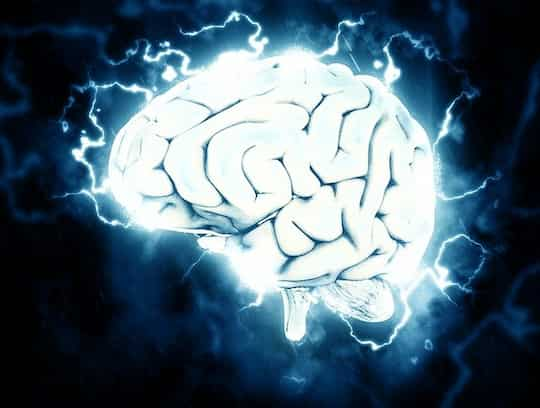Depression is an extremely common experience, which can be hard to escape from once an episode has begun.
Psychological research has found all sorts of ways that the chances of developing depression can be reduced.
From social connection, through building resilience to taking up a hobby, there are many science-backed methods for lowering depression risk.
Click the links for a fuller description of each study including the reference.
1. Social connection
Social connection is the strongest protective factor against depression.
People who feel able to tell others about their problems and who visit more often with friends and family have a markedly lower risk of becoming depressed.

The data, derived from over 100,000 people, assessed modifiable factors that could affect depression risk including sleep, diet, physical activity and social interaction.
Dr Jordan Smoller, study co-author, explained the results:
“Far and away the most prominent of these factors was frequency of confiding in others, but also visits with family and friends, all of which highlighted the important protective effect of social connection and social cohesion.”
2. Build resilience
Recalling positive memories helps to build resilience against depression.
Reminiscing about happy events and having a store of these to draw on is one way of building up resilience.
Similarly, getting nostalgic has been found to help fight loneliness and may also protect mental health.
Thinking back to better times, even if they are tinged with some sadness, helps people cope with challenging times.
3. Regulate your mood naturally
Being able to naturally regulate mood is one of the best weapons against depression.
Mood regulation means choosing activities that increase mood, like exercise, when feeling low and doing dull activities like housework when spirits are higher.
Some of the best ways of improving mood are being in nature, taking part in sport, engaging with culture, chatting and playing.
Other mood enhancing activities include listening to music, eating, helping others and childcare.
4. Eat healthily
Eating more fruits and vegetables lowers the risk of depression.
Reducing fat intake and increasing levels of omega-3 are also linked to a lower risk of depression.
The anti-inflammatory and antioxidant properties of fruits and vegetables may account for their beneficial effect.

Vitamins and minerals in fruit and vegetables may also help to lower the markers of inflammation, such as C-reactive protein.
Similarly, adding more fibre to the diet decreases depression risk.
This is probably why many studies link vegetarian and vegan diets to a lower risk of depression.
5. Stop obsessing about failures
Excessive negative thinking about unfulfilled dreams is linked to depression and anxiety.
When people repeatedly compare a mental vision of their ideal self with the failure to reach it, this can produce psychological distress.
Aspirations can be damaging as well as motivating, depending on how the mind deals with them and what results life happens to serve up.
Thinking obsessively about a perceived failure is psychological damaging.
6. Reduce sedentary activities
Cutting down on screen-time strongly reduces depression risk, whether or not people have previously experienced a depressive episode.
The results come from data covering almost 85,000 people.
The study found that another important lifestyle factor linked to less depression is adequate sleep — around 7 to 9 hours is optimal.
Again, adequate sleep improves mood even in people who have not experienced depression.

7. Be in nature
Being in nature relaxes the mind, which in turn enhances the immune system.
This may explain why nature has a remarkably beneficial effect on a wide range of diseases including depression, ADHD, cancer, diabetes, obesity and many more.
Dr Ming Kuo, who carried out the research, explained how nature helps:
“When we feel completely safe, our body devotes resources to long-term investments that lead to good health outcomes — growing, reproducing, and building the immune system.
When we are in nature in that relaxed state, and our body knows that it’s safe, it invests resources toward the immune system.”
8. Take up a hobby
People who take up any hobbies reduce their risk of depression by almost one-third.
Pursuing hobbies increases the chance of a depressed person recovering by 272 percent.
Hobbies are usually considered informal leisure activities that are not done for money and do not involve physical activity.

Things like music, drawing, sewing and collecting would be good examples.
To be beneficial to mental health, hobbies do not necessarily need to be social.
However, some studies do find that social hobbies can be particularly beneficial to happiness.
9. Get fit
People high in aerobic and muscular fitness are at half the risk of depression.
Being fit also predicts a 60 percent lower chance of depression.
The study tracked over 150,000 middle-aged people in the UK.
Their aerobic fitness was tested on a stationary bike and muscle strength with a handgrip test.
After seven years, people who were fitter had better mental health.
Those with combined aerobic and muscular fitness had a 98 percent lower risk of depression and 60 percent lower risk of anxiety.
10. Mindfulness
Mindfulness helps to reduce depression, anxiety and stress for many people, new research finds.
However, its effects on depression and anxiety may be relatively small, with the highest quality studies finding little benefit.
The best advice is probably to try and see if it works for you, but do not be surprised if its effects on depression and anxiety are modest.
Here are some common mindfulness exercises that are easy to fit into your day and 10 ways mindfulness benefits the mind.
→ Want more suggestions? Here are 8 more everyday tools for fighting depression.
.














